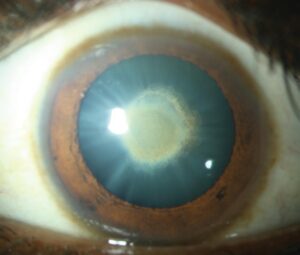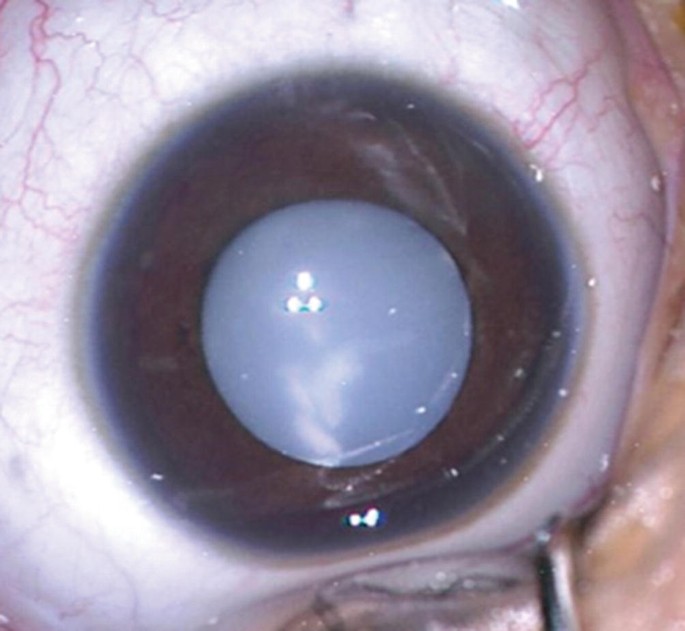If you have been experiencing vision problems, it is important to visit your eye doctor and get them checked out. You may be suffering from a condition known as a metabolic cataract. This is a type of cataract that is caused by changes in the metabolism, and it can lead to vision loss if not treated. In this blog post, we will discuss what metabolic cataract is, how it is treated, and some of the risks associated with it. We hope this information will help you make the best decisions for your health!
What Is A Metabolic Cataract?
 A metabolic cataract is a type of cataract that develops as a result of an underlying metabolic disorder. The most common metabolic disorders that can lead to the development of a metabolic cataract are diabetes and galactosemia.
A metabolic cataract is a type of cataract that develops as a result of an underlying metabolic disorder. The most common metabolic disorders that can lead to the development of a metabolic cataract are diabetes and galactosemia.
This condition is different from other types of cataracts because it is not caused by an injury or infection. Instead, it occurs when the metabolism is not functioning properly. This can cause the lens of the eye to become cloudy and opaque.
Many people with metabolic cataracts do not experience any symptoms. However, some people may notice that their vision is beginning to deteriorate. In addition, the affected eye may appear to be milky or white. Therefore, if you are noticing any changes in your vision, it is important to see an eye doctor right away.
What Are The Symptoms?
While symptoms of a metabolic cataract can vary, they typically include:
- Blurry vision
- Poor night vision
- Increasing difficulty seeing colors
- Sensitivity to light
- Glare or halos around lights
It is often believed that metabolic cataracts develop slowly over time. However, in some cases, they can form quickly, seemingly overnight. The reason can be due to an underlying health condition or changes in medications.
If you experience any of these symptoms, it’s important to see your doctor right away for a comprehensive eye exam. Only an eye care professional can diagnose a metabolic cataract and rule out other potential causes of your symptoms.
Is Cataract A Metabolic Disease?
A metabolic cataract is a type of cataract that is caused by an underlying metabolic disorder. Metabolic disorders can be either inherited or acquired. Inherited metabolic disorders are usually passed down from parents to children. Acquired metabolic disorders can develop over time due to poor diet, lack of exercise, and other lifestyle factors.
Cataracts are usually first noticed by a person’s family or friends. This type of eye condition is generally caused by a build-up of protein in the lens of the eye. This can happen for a variety of reasons, but most often it is due to aging or exposure to ultraviolet (UV) light. Cataracts typically develop slowly and painlessly.
So, it is not completely to say that cataract is a metabolic disease. However, some risk factors can make a person more likely to develop this condition. These include:
- Diabetes
- Obesity
- High blood pressure
- Smoking
If you have any of these risk factors, it is important to talk to your doctor about ways to reduce your risk of developing cataracts. There are also a number of treatment options available if you already have cataracts. So do not despair if you are diagnosed with this condition. With early diagnosis and treatment, you can still enjoy a clear vision for many years to come.
What Metabolic Disorder Causes Cataracts?
 Now you know that metabolism is related to cataracts, but what is the specific metabolic disorder that leads to this eye condition? It’s called galactosemia, and it occurs when your body can’t properly metabolize galactose.
Now you know that metabolism is related to cataracts, but what is the specific metabolic disorder that leads to this eye condition? It’s called galactosemia, and it occurs when your body can’t properly metabolize galactose.
Galactose is a type of sugar found in milk and other dairy products. This type of metabolic disorder defines as an inability to convert galactose into glucose. When left untreated, galactosemia can lead to cataracts, as well as other serious health problems like liver damage, kidney failure, and death.
And diabetes can also cause cataracts. In fact, studies have shown that people with diabetes are twice as likely to develop cataracts than people without diabetes. This is because high blood sugar levels can damage the proteins in your eyes, leading to cataract formation.
In addition, other metabolic disorders that can cause cataracts include:
- Phenylketonuria (PKU): An inherited disorder that prevents the body from properly breaking down phenylalanine, an amino acid found in many foods.
- Tyrosinemia: A rare disorder that prevents the body from breaking down tyrosine, an amino acid found in many proteins.
- Wilson’s disease: An inherited disorder that prevents the body from properly storing copper.
These are just a few of the many metabolic disorders that can lead to cataracts. If you think you may have a metabolic disorder, it’s important to see your doctor as soon as possible for diagnosis and treatment. Thankfully, early diagnosis and treatment of this disorder can help prevent these more serious complications.
How Is It Diagnosed?
Sometimes, a routine eye exam will reveal early signs of metabolic cataracts. Your doctor may notice changes in your lens shape or density. They may also detect an increased amount of protein in your lens, which can be seen during a special test called a slit lamp examination.
This type of test uses a special microscope to examine your eye. Your doctor will look for changes in the lens, such as cloudiness, thickness, or shape. They may also order other tests, such as blood work or genetic testing, to rule out other conditions.
These numerous types of tests to diagnose metabolic cataracts can be confusing. You may feel like you are being run through a gauntlet of tests just to find out what is wrong with your eyes.
However, it is important to remember that these tests are essential in order to determine the best course of treatment for you. So, why wait further when you can get the best treatment for metabolic cataracts to get back your bright vision, be sure to contact a professional today!
How Is Metabolic Cataract Treated?
Metabolic cataracts are treated with a combination of lifestyle changes and medical interventions. Let’s discuss both options in detail to help you:
Lifestyle changes
Certain lifestyle changes can help prevent and treat metabolic cataracts. These include:
- Eating a healthy diet: It is important to eat a diet that is rich in antioxidants, vitamins, and minerals. This type of diet helps to protect the eyes from damage.
- Exercising regularly: Exercise helps to improve circulation and can also help to reduce stress levels.
- Wearing sunglasses: Sunglasses help to protect the eyes from harmful UV rays.
- Quitting smoking: Smoking is a major risk factor for developing cataracts. If you smoke, quitting is the best way to reduce your risk.
These things might seem like small changes, but they can make a big difference in your eye health. Start implementing some healthy things in your routine for better results!
Medical interventions
In some cases, medical intervention may be necessary to treat metabolic cataracts. Treatment options include:
- Surgery: This is typically only recommended if the cataract is causing severe vision problems. Surgery involves removing the cloudy lens and replacing it with a clear artificial lens. The process is usually quick and relatively painless.
- Medication: If the cataract is not causing significant vision problems, your doctor may recommend medications to help slow its progression. These may include vitamins, minerals, and antioxidants.
- Eye drops: Many people with metabolic cataracts find that eye drops can help improve their vision. These may include artificial tears, lubricating drops, or anti-inflammatory drops.
Talk to your doctor about which treatment option is right for you. With proper treatment, you can slow the progression of metabolic cataracts and preserve your vision.
Conclusion
Well, there you have it. Metabolic cataracts are a type of cataract that can be caused by diabetes and other metabolic disorders. If you think you may have a metabolic cataract, be sure to see your doctor or ophthalmologist right away. They can help you diagnose the problem and come up with a treatment plan.
Treating metabolic cataracts is important not only for your vision but also for your overall health. With the right treatment, you can slow the progression of the cataract and preserve your vision.
For more information, please reach out Eye Mantra. At EyeMantra we have a team of experienced eye surgeons, who will be happy to answer any questions on cataract surgery, cataract surgery cost, cataract lens cost for different cataract surgery types- Phacoemulsification, MICS & Femto Laser Cataract. Call us at +91-9711116605 or email at [email protected] for inquiries.


